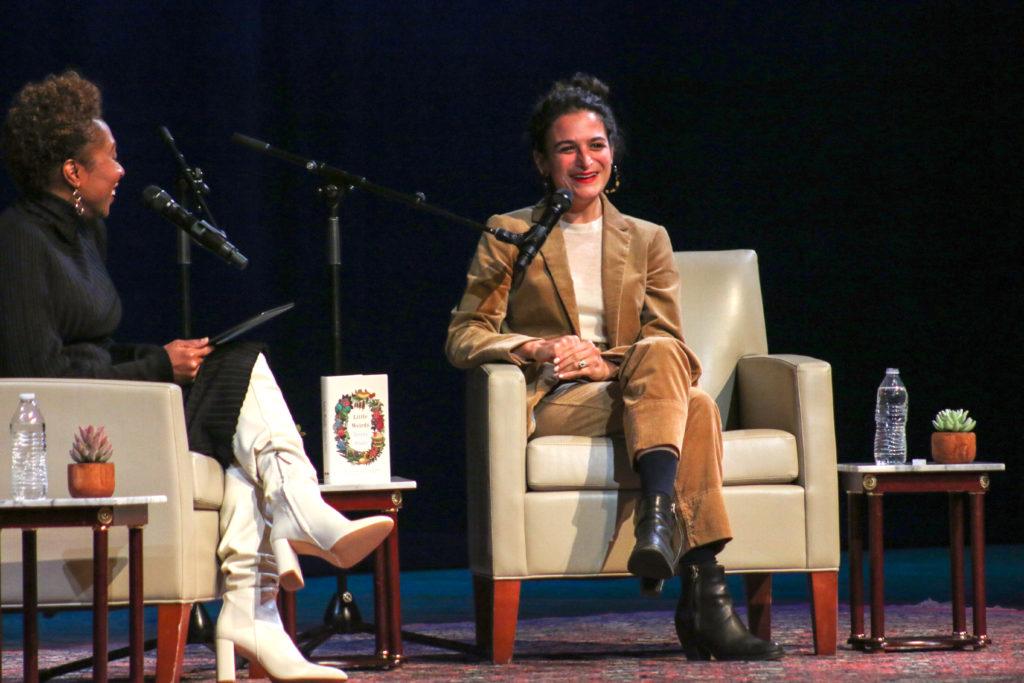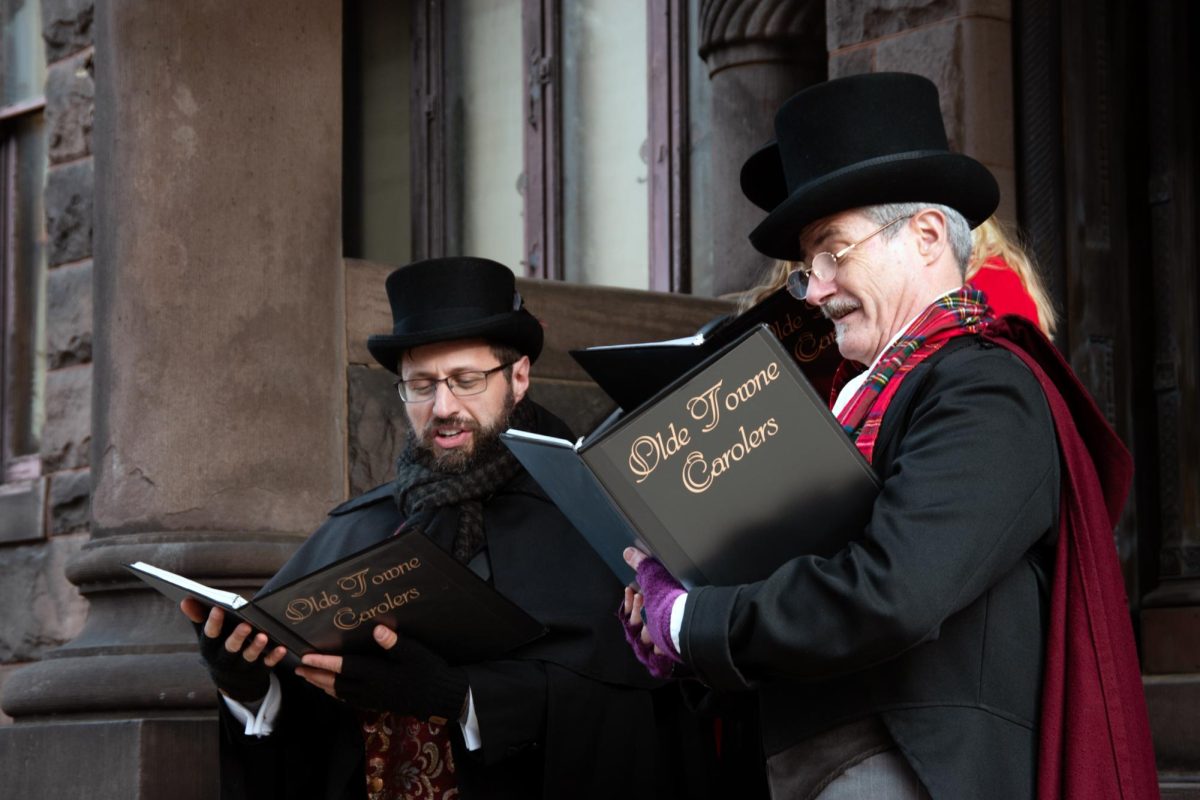Actress and comedian Jenny Slate discussed her personal life and upcoming book in Lisner Auditorium Sunday.
Slate, who is known for her roles in “Big Mouth,” “Obvious Child,” “Secret Life of Pets” and “Marcel the Shell,” spoke with NPR journalist Audie Cornish during the first stop on her book tour for “Little Weirds,” a series of memoirs about her life. Her appearance was also part of a live-taped “Women in Comedy” series presented by NPR’s “All Things Considered.”
In case you couldn’t attend the book talk, here are some highlights from the evening:
Slate’s upbringing
After reading a passage from her book, Slate talked about her upbringing and the ups and downs of her career with Cornish. Slate said she has been an “avid reader” since she was a child, growing up with a father who wrote poetry and later attending Columbia University to study literature.
She said she has always been interested in comedy but was never the class clown in school. Slate shared memories of calling her grandfather on the phone, pretending to be the owner of a made-up Jewish organization to make him laugh.
But Slate said she often felt out of place in school because she had trouble paying attention. Her father would show her tapes of comedian Gilda Radner on “Saturday Night Live” because he thought Slate’s sense of humor was similar to Radner’s, she said.
“I felt for a while like I wasn’t smart because I didn’t listen traditionally and people were mad at me for it,” she said. “My dad brought me these tapes of Gilda Radner and was like, ‘No, you’re just like this.’”
Throughout the conversation Cornish played several clips of Slate’s comedic works, including a clip from her Netflix comedy special “Stage Fright,” in which she jokes about the contrast between a Catholic midnight mass and the “morose” songs she sang with her family on holidays to recall Jewish history.
Bouncing back from failure
Slate recalled being fired from “Saturday Night Live” in 2009 for swearing on air. She said she got along with other actors on the show but was critical of the program’s culture, which she said bred “fear and intimidation” because actors couldn’t take risks.
She said the instance was one of the most publicized moments of her career, which was “annoying” because her setback was a constant topic of conversation in the media. But Slate said she quickly got over feelings of embarrassment because the news cycle moves quickly.
“I noticed that I was the person carrying that around and going to meetings for a new job being like, ‘So I got fired,’’ she said. “Everyone would be like, ‘You know, we don’t know that, we don’t care.’”
She added that despite losing the job, she still holds fond memories during her time on SNL.
“Nothing will ever dim the lights of that experience which was like getting the job, and leaving 30 Rock, calling my parents and saying ‘I am going to be on Saturday Night Live.’ It’s such a beautiful achievement,” Slate said.
Finding her ‘inner child’
Today, Slate is recognized for her career in the animated world, playing roles like Missy on “Big Mouth,” Marcel in “Marcel the Shell,” Bellwether in “Zootopia” and Gidget in “Secret Life of Pets.” She joked that she calls herself a “cartoon as a person.”
“I do think it’s funny that I take issue with the parts of myself that just feel that they are in childhood,” she said. “I have had to redefine what adulthood means.”
Slate credited “Marcel the Shell,” a stop-motion Youtube series she created with her ex-husband Dean Fleischer-Camp, as one of the projects that helped her make sense of challenges in her life, like her divorce in 2016.
“It allowed me to be sweet and melancholy at once,” she said. “And understand one of the things that is essential in my belief is that sorrow is not the same as pessimism, and you can feel sadness and still be an optimist.”
Slate finished the conversation with a reading of a segment from her book, which she said captures the experience of being alone in the airport and a trip with friends to Norway, where she met her now-fiancé, Ben Shattuck.
“I cried a lot on the airplane,” Slate read. “I looked into my heart for the first time in a long time, and I saw a door to something.”








